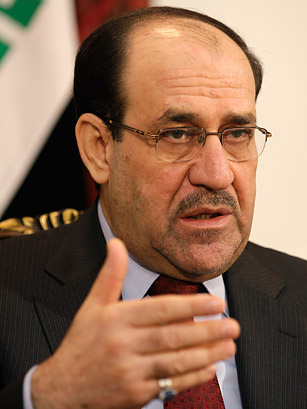
All U.S. troops will leave Iraq by New Year's Eve, but the country will retain close ties with the United States — and also with America's arch-enemy, Iran. When Nuri al-Maliki first assumed office as Prime Minister of Iraq in May of 2006, he was widely viewed as a colorless bureaucrat of the Shi'ite Islamist Dawa Party, chosen when a political deadlock required a politically feeble seat-warmer in the job. Five years later, Maliki has revealed himself to be adept at playing Iran-U.S. tensions to his own advantage: He worked his way back into the top job with Iran's help in coalition building, and declined to agree to terms for extending the U.S. troop presence, partly in deference to Iran's wishes. At the same time, he is buying arms and seeking assistance from the U.S. and vowing to limit Iranian influence. Domestically, he's also revealed an authoritarian streak in consolidating his grip on power, often using his control of key security forces to suppress those he deems politically threatening.